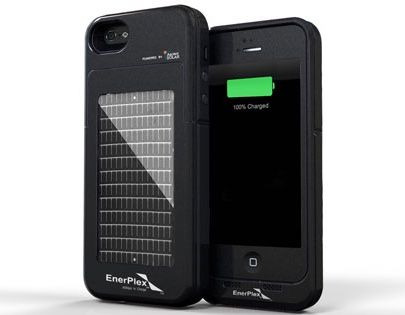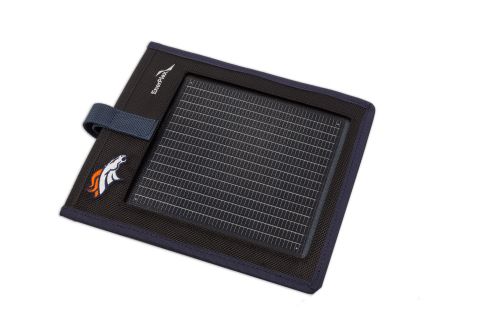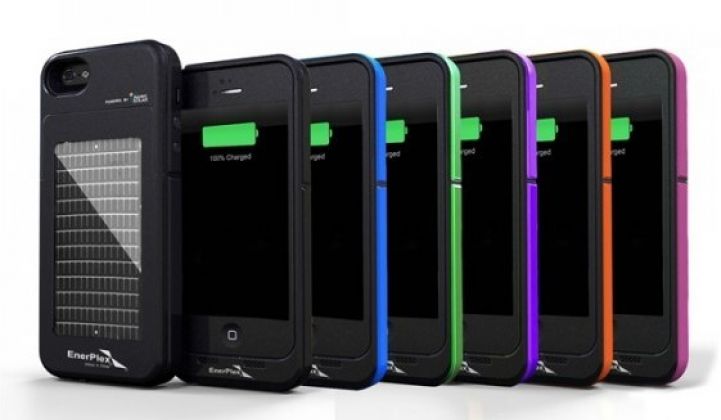Can Ascent Solar, once a rooftop solar aspirant, become a consumer-facing solar gadget sales company? Can a technology company change its corporate DNA and become a sales and marketing firm?
In early 2011, Ascent Solar (ASTI), a distressed CIGS thin-film solar manufacturer, shifted its strategy from solar rooftops and building-integrated PV to solar device chargers for consumer, off-grid, and military applications. Ascent suggested higher margins were possible in those fields compared to ground-mount applications or BIPV markets. This shift came after years of unsuccessful attempts to succeed in the BIPV space.
In August 2011, Ascent found a savior in new majority owner: Asian conglomerate TFG Radiant. TFG Radiant Group is a JV of Radiant Group, a Chinese construction and real estate conglomerate, and Tertius Financial Group, a Singapore-based investment firm. Recently, Ascent completed a $10 million preferred stock purchase with institutional investor Ironridge Technology.
In a press release from late last year, Victor Lee, CEO of Ascent, said, "Ascent Solar has initiated a paradigm shift by directly entering the consumer market with our EnerPlex brand, drastically changing the dynamics of our intrinsic value proposition, especially when compared to companies which remain exclusively in the business of manufacturing commercial solar."
That salty language means that the company's scale and CIGS product were uneconomical for rooftop products.
Publicly traded -- and profitless -- Ascent's third-quarter 2013 financials show some of the pitfalls of the company's new strategy. Product revenue in Q3 was $268,000 compared to $166,000 in the previous quarter. Net loss for the third quarter was $6.5 million compared to a net loss of $7.1 million in the previous quarter and a loss of $6.4 million in the third quarter of 2012. Cash and cash equivalents were $3.9 million as of September 30, 2013, but Ascent has recently raised additional funding.
Ascent's stock currently hovers at $0.68 per share, appearing ripe for a Nasdaq delisting notice. Current market cap is $40.2 million.
Can Ascent's line of CIGS-based solar device- and battery-chargers turn the moribund concern into a thriving public company?
Amit Kumar, the Chairman of Ascent Solar, spoke at Wednesday night's Silicon Valley IEEE (and Asperger's support group) meeting at PARC in Palo Alto. He pointed out that Ascent's thin-film CIGS on flexible polymide is an order of magnitude lighter than other solar products and hits about 12 percent efficiency. Kumar said, "We shifted our strategy to where cost is not as big a factor."
Kumar described the company's strategy this way: "We are targeting premium markets with high margin products." He said he longer needs to speak of price-per-watt, but rather of price-per-unit. He pointed out that there is one-third of a watt of solar in the phone charger and it sells for $79 or $89 -- "That's more than $100 per watt." He continued, "We don't want to touch any product unless we're getting $20 per watt." (But if solar is such a small piece of the device BOM, why even bother owning an uneconomical 30-megawatt CIGS factory?)
"We're not fighting against all the other solar companies. It's not as important to reduce [solar] cost when you're operating in this marketplace. There's no twenty-year warranty, said Kumar, adding, "If you're selling it to a consumer, it's only going to last a year or two."
The firm designs and builds chargers for iPhones and Samsung phones, as well as backpack chargers and a set of related battery and portable low-power gear.
Kumar and Ascent are radically shifting both the company's product and its sales channel. It's a tough trick. With limited resources, Ascent has to restart the company with newly established sales and distribution channels, supply channels and capital-light marketing efforts. Ascent doesn't need engineers -- it needs sales executives, sales managers and sales channels.
Ascent has a partnership agreement with the Denver Broncos and sales at Fry's Electronics and other retailers.
As chairman, Kumar seems focused on mall or airport kiosk sales as a scalable method of growing and as "a way to make Wall Street treat us like Starbucks instead of SunPower."
Ascent is not the only company going after this market. Companies such as Goal Zero (with $60 million in 2013 revenue according to the New York Times) and Joos Orange have stylish products on offer. Alta Devices has spoken about moving into this market. BBOXX, with $1.9 million from Vinod Khosla's personal fund, Khosla Impact, and the U.K.’s Synergy Growth, makes a line of PV plus storage plus charging systems for third-world distributed power. Stellaris, another solar company that has had rooftop plans, makes a device charger. Fuel cell companies such as MTI and Lilliputian have attempted to address this market, as well.






